SUMMARY
This is AI generated summarization, which may have errors. For context, always refer to the full article.
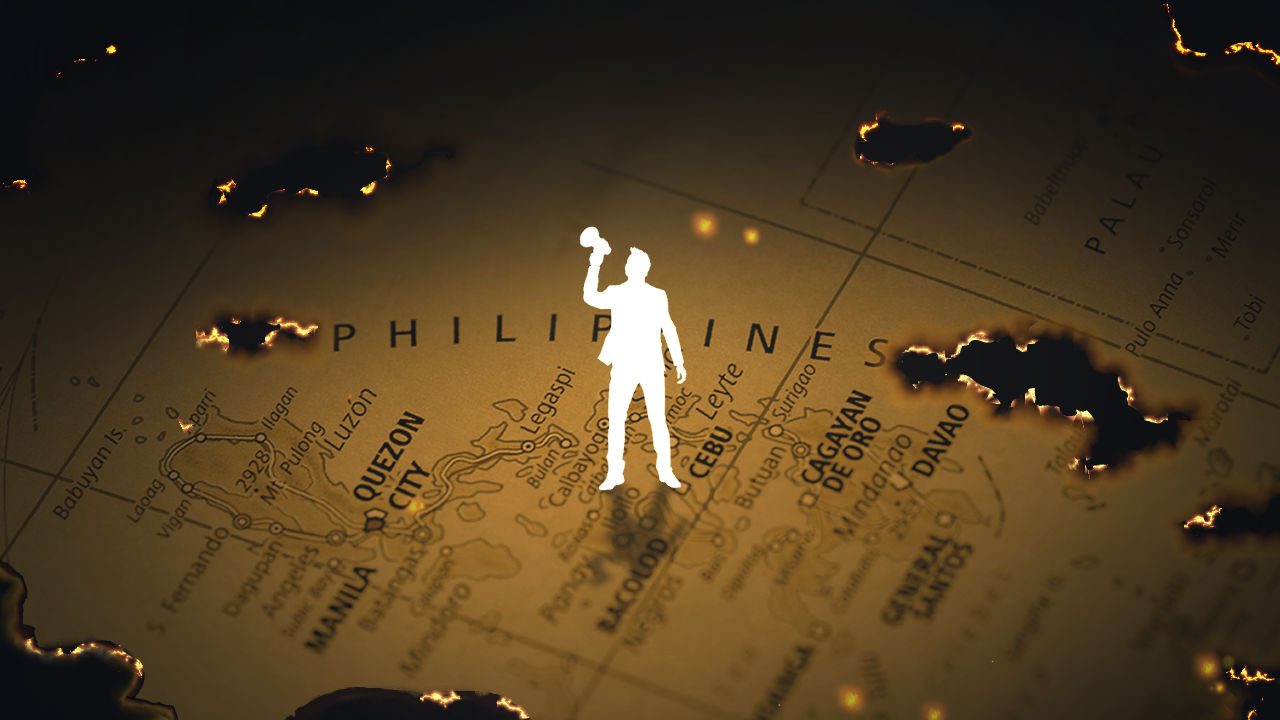
MANILA, Philippines – It was almost the end of the two-week United Nations (UN) Climate Change Conference in Egypt when a dozen representatives of civil society organizations (CSOs) aired out their frustration over the lack of a “strong Philippine voice on the negotiating table.”
Not only did the Philippine delegation head into the more tense second week of talks without their leaders, but the CSOs present at Sharm El Sheikh were also frustrated that it took until halfway through COP27 before they obtained a “more detailed presentation” of the country’s positions in the climate talks.
The Marcos presidency was barely five months into office then, with a new environment secretary and a Climate Change Commission (CCC) whose leaders had been appointed just months before the change in government.
But at COP27, the country was at least finally engaging with the world again after six years of there being “no Philippine voice to speak of” in climate talks under the Duterte administration.
“I think last year, they were very open to civil society. Nakikinig sila, nagme-meet sila, nagbe-brief sila (They were listening, meeting, briefing), and they allowed to be briefed kasi importante ‘yun dahil hindi naman sila lahat veterans doon eh (because that’s important as they’re not all veterans there),” Manila Observatory’s Antonio La Viña told Rappler, referring to the Philippines’ COP27 delegation.
This time around, for the 28th iteration of COP or Conference to the Parties of the UN Framework Convention on Climate Change, it seems civil society engagement started early in the year, with the Philippine government already communicating to CSOs its “broad positions on mitigation, adaptation, loss and damage, finance, and other key issues” as early as May, according to Aksyon Klima Pilipinas national coordinator John Leo Algo.
Closer to the conference – happening in Dubai, United Arab Emirates, from November 30 to December 12 – the CCC also held a COP28 consultation with dozens of CSOs last November 17.
“The COP28 consultation organized by the Climate Change Commission is relatively a step in the right direction towards a more inclusive process of forming the country’s positions in the global climate negotiations. There has been an improvement in the inclusivity aspect to where we were in the last half of the previous administration,” Algo told Rappler.
Inclusive climate policymaking was among the asks of CSOs during 2022’s talks as the Philippines seeks to reclaim its strong voice in climate negotiations on the world stage.
Be ‘big voice’ in loss and damage
Historically, the Philippines has had a strong voice and was a big player in climate negotiations, according to La Viña, a lawyer and climate expert who served many times as lead negotiator for the Philippines in UN climate talks. But “we wasted a lot of that,” he said, during the six years of former president Rodrigo Duterte, who was inconsistent at best, with his climate policies.
With the new administration, La Viña said “we’re finding that voice again,” especially with Secretary Antonia Yulo-Loyzaga – a known disaster resilience expert and climate change advocate – at the helm of the environment department.
And with the loss and damage fund among the most important negotiating items at COP28, countries vulnerable to climate change like the Philippines must step up and take an active role in the discussions, according to Jon Bonifacio, national coordinator of the Kalikasan People’s Network for the Environment.
“We can’t have a setup in which we are given loans again…. Kailangan talagang magkaroon ng clear leadership on the part of vulnerable countries…. para magkaroon ng clear orientation ‘yung fund (There needs to be clear leadership on the part of vulnerable countries for the fund to have a clear orientation),” said Bonifacio, who physically attended the last two COPs.
La Viña also said his biggest expectation of the Philippine delegation is to be a “big voice” that will lead to the operationalization of the loss and damage fund “as quickly as possible.”
Loss and damage – one of the most contentious issues at climate talks – refers to adverse impacts that cannot be or have not been avoided through mitigation and adaptation, although there remains no internationally agreed definition of the term. Earlier in November, a transitional committee made recommendations for the fund that would be put up for approval at COP28.
‘Do the right thing’ on envi defender killings
Both La Viña and Bonifacio also expect the Philippine government to “do the right thing” and be vocal about environmental defender killings in the Philippines at COP28, given its track record of being the most dangerous country in Asia for land and environmental defenders for 10 years straight now.
This comes after a recent visit to the Philippines by UN Special Rapporteur Ian Fry, where he learned about the killings and called for the abolition of the government’s National Task Force to End Local Communist Armed Conflict (NTF-ELCAC).
“We…also expect that the government respond positively to that (Fry’s report)…to be constructive and say, this is what we will do, including human rights defenders, climate justice defenders, and environmental defenders, the abolition of NTF-ELCAC. These are part of the process, these are part of the discussions, climate and human rights,” La Viña said in a mix of Filipino and English.
Bonifacio said there’s a rising call from CSOs to bring to the COP table issues like environmental defender killings and human rights abuses and to recognize these in the decision text.
“That’s one of our hopes, that there would be a justice angle in the way the Philippines engages in the negotiations, and not just, ‘Oh, we get money’ – which is good, I mean, that’s great. But we also have to talk about where this money is going, how is it helping communities, and how are we ensuring that these projects that will be put up are not actually, you know, trampling on human rights, which is happening,” he said in a mix of Filipino and English.
On global stocktake, energy transition
While delivering on the loss and damage fund is considered the “litmus test” for this year’s negotiations, there are other issues that climate experts are looking at to measure the success of COP28.
There’s the first-ever global stocktake, a process for governments and other stakeholders to track and evaluate their progress toward meeting the goals of the Paris Agreement.
“The global stocktake is basically looking at what we know now, the [IPCC] 6th assessment report, looking at the challenge of implementing the Paris Agreement, looking at new technologies…. Paris Agreement is only up to 2030. So, what’s next after that?” La Viña said as he called for a good decision on the global stocktake that is “truthful and ambitious.”
Another contentious issue at COPs is how nations deal with fossil fuels. The decision texts of COP26 and COP27 both failed to commit to anything more than the “phasedown of unabated coal power and phaseout of inefficient fossil fuel subsidies.”
“I will always look for how they will deal with fossil fuels, because that’s controversial. But honestly, I’m not very hopeful, because the host is an oil-producing, natural gas-producing country, right? So, it’s like a miracle if you have a good agreement,” La Viña said in a mix of English and Filipino.
The UAE is a senior member of the Organization of the Petroleum Exporting Countries, and its wealth is built on oil. What’s more, the leader of this year’s climate talks, Sultan al-Jaber, is not only the country’s industry minister but also the chief executive of state energy giant Abu Dhabi National Oil Company.
Bonifacio said because of this, a lot of people have some reservations with this COP and what seems to be a “much more limited space” in Dubai for CSOs. If the Philippines is to play an active role in the negotiations, he said it is critical to ensure that civil society is represented by the country’s official delegation. (SPECIAL COVERAGE | COP28: UN Climate Change Conference agenda, latest updates)
On mitigation, adaptation
For Aksyon Klima Pilipinas’ Algo, while their group’s positions on adaptation, loss and damage, finance, and the global stocktake are aligned with the Philippine delegation’s “broad positions,” the government’s position on mitigation “leaves a lot to be desired.”
“On one hand, the call for developed nations to live up to their promise of giving finance, technology, and capacity building for the most vulnerable countries like the Philippines has been consistent with the long-standing position of the country as a leading voice for climate justice. However, there remains a lack of strong language on ending the era of fossil fuels, which is a necessity if we hope to still limit global warming to 1.5°C,” he said.
The group – the country’s largest civil society network for climate action – expressed concern over the Marcos administration’s “open support to what it believes to be sustainable mining, as part of developing [renewable energy] technologies.”
“When we see repeating cases of communities and ecosystems suffer from destructive mining practices and see these minerals be used for the benefit of foreign corporations, it is understandable for our communities to be skeptical of the government’s pro-mining stance, especially as part of what is supposedly a just transition position in the negotiations,” Algo added.
Bonifacio also called out the government’s supposed “climate solutions” for adaptation – such as building seawalls, reclamations, and megadams – as they are being supported by climate finance but “they’re not actually helping communities adapt.”
“Because a lot of the communities are being displaced. They’re…being torn out of their ecosystems and their livelihoods,” he said in a mix of English and Filipino.
Why care about COP28?
Still, La Viña said Filipinos should care about the COP process because success in these talks would give them “real money to deal with having to rebuild their communities.”
“If we succeed in loss and damage, those affected in the Philippines of climate change, in the future, and those nearly affected…could get money quickly to rebuild. So, that’s the most important,” he added.
For a country battered by strong typhoons and extreme weather events year in and year out, many Filipinos are not just aware of climate change – they already feel its effects.
Bonifacio said that while COP28 is not the be-all and end-all of climate discussions, this annual event is an opportunity to bring more awareness to people about the different solutions already in place to tackle climate change.
“People should care about COP in the sense that they should care about climate change also…. If you look at COP as a process that will solve climate change, you’re gonna get really tired immediately, because it’s not gonna get anywhere by itself,” he said.
Bonifacio added, “But as a piece in the puzzle…[as] a solution that we’re going to ultimately, hopefully, bring together as soon as possible, it’s worth engaging in.” – with reports from Reuters/Rappler.com
This story was produced as part of the 2023 Climate Change Media Partnership, a journalism fellowship organized by Internews’ Earth Journalism Network and the Stanley Center for Peace and Security.
Add a comment
How does this make you feel?






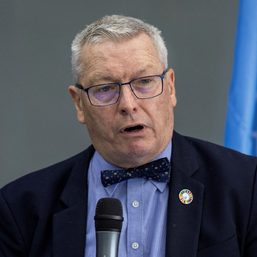
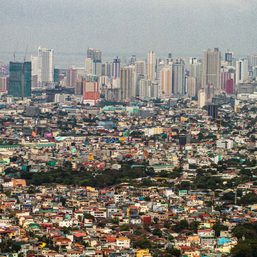
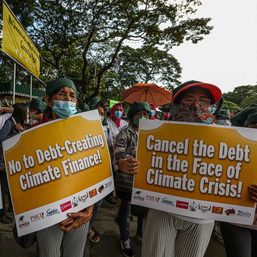








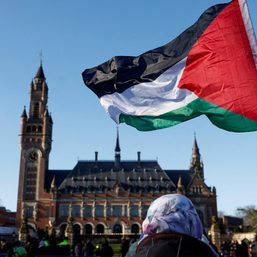




There are no comments yet. Add your comment to start the conversation.